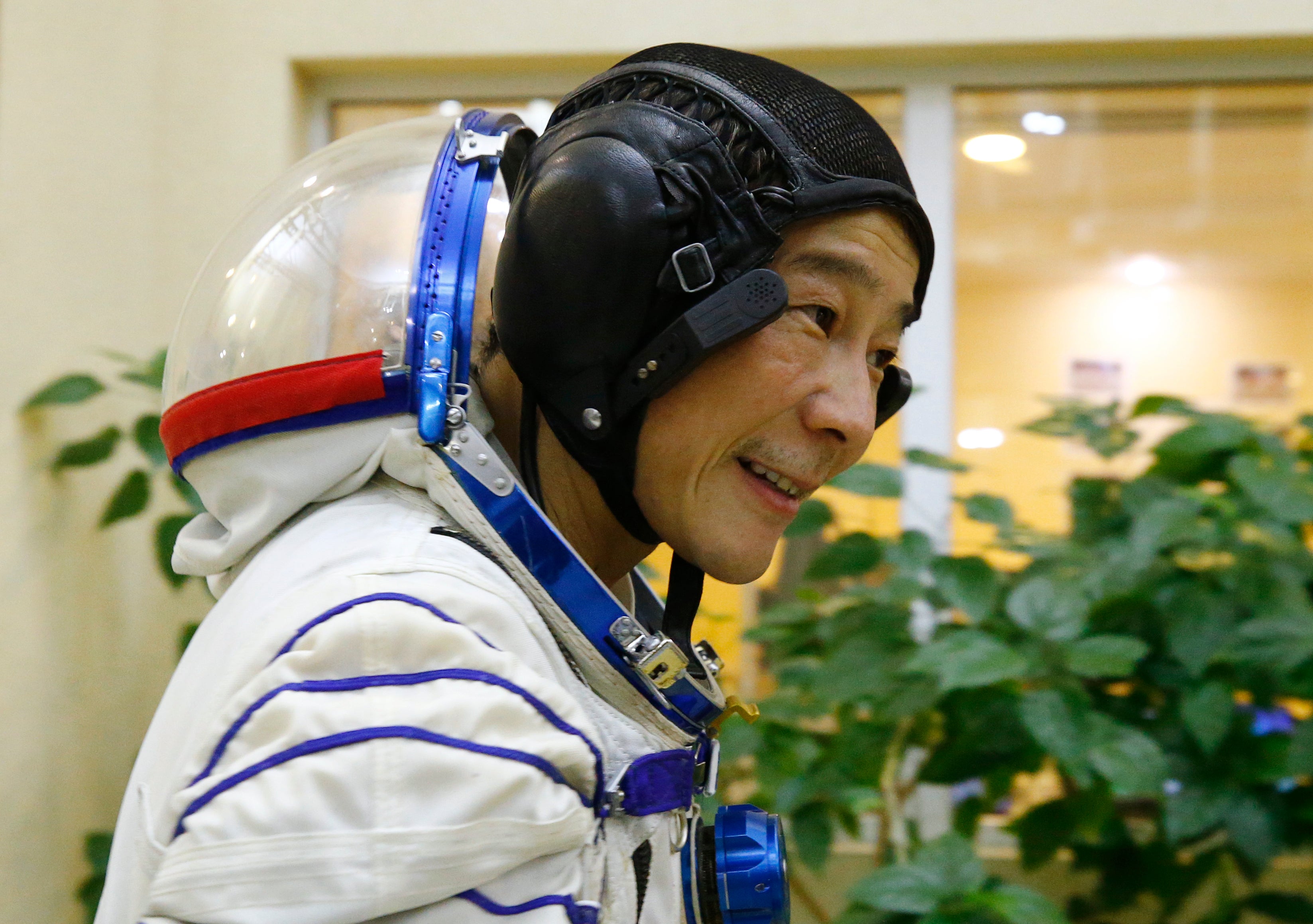Your support helps us to tell the story
From reproductive rights to climate change to Big Tech, The Independent is on the ground when the story is developing. Whether it's investigating the financials of Elon Musk's pro-Trump PAC or producing our latest documentary, 'The A Word', which shines a light on the American women fighting for reproductive rights, we know how important it is to parse out the facts from the messaging.
At such a critical moment in US history, we need reporters on the ground. Your donation allows us to keep sending journalists to speak to both sides of the story.
The Independent is trusted by Americans across the entire political spectrum. And unlike many other quality news outlets, we choose not to lock Americans out of our reporting and analysis with paywalls. We believe quality journalism should be available to everyone, paid for by those who can afford it.
Your support makes all the difference.A Japanese billionaire will blast into space aboard a Russian rocket on Wednesday, marking Moscow’s return to space tourism after a decade hiatus.
Yusaku Maezawa – one of Japan’s richest men with a net worth of about £1.4bn – will be taken to the International Space Station (ISS) for a 12-day mission.
His assistant Yozo Hirano will join him to document the journey for his YouTube channel.
The businessman will be the first tourist Russia has carried into space since 2009.
It marks an significant moment for Russia’s space programme, which has in recent years been playing catchup to a slew of American start-ups.
After the Space Shuttle was retired in 2011, only Russia could transport people to the ISS but last year Elon Musk’s SpaceX successfully blasted two NASA astronauts into space.
It was this which opened up seats on Russia’s Soyuz spacecraft which were eventually sold to Mr Maezawa.
The tycoon is the founder of Japan’s largest online fashion mall and the country’s 30th richest man, according to Forbes.
He and Mr Hirano have spent months training for their mission at Star City, a town outside of Moscow which has been the centre of both Soviet and now Russian space training for decades.
"I am almost crying because of my impressions, this is so impressive," Mr Maezawa said late last month after arriving at Baikonur in Kazakhstan – where his rocket will take off – for the final days of preparation.
The 46-year-old said the training needed to get ready for his flight was the hardest he had ever done, and the spinning chair in particular "almost feels like torture".
So far, Russia has sent seven self-funded tourists to space in partnership with the US-based company Space Adventures. Mr Maezawa and Mr Hirano will be the first from Japan.
Their trip comes at the end of a groundbreaking year for space tourism. In recent months SpaceX took the first ever all-civilian crew in a three-day journey orbiting the earth, while their competitor Blue Origin – owned by Amazon founder Jeff Bezos – also completed two missions beyond the earth’s atmosphere.
Not to be outdone, Virgin Galactic boss Richard Branson shortly afterwards also went to the fringes of space in a mission which included a few minutes of weightlessness.
In 2023, SpaceX is planning to take eight non-professional civilian astronauts on a flight around the moon and back.
Mr Maezawa has bought all eight seats and is currently holding a competition to find people who will fly with him.
Russia has also said it will take more tourists to the ISS on future Soyuz launches and plans to offer one of them a spacewalk.
Retaining the title of the leading space nation is a matter of national pride for Russia, stemming from its Soviet-era achievements amid rivalry with the US.
However, its space programme is still largely reliant on Soviet-era technology and has suffered setbacks, funding cuts, corruption scandals and botched launches in recent years.

Join our commenting forum
Join thought-provoking conversations, follow other Independent readers and see their replies
Comments